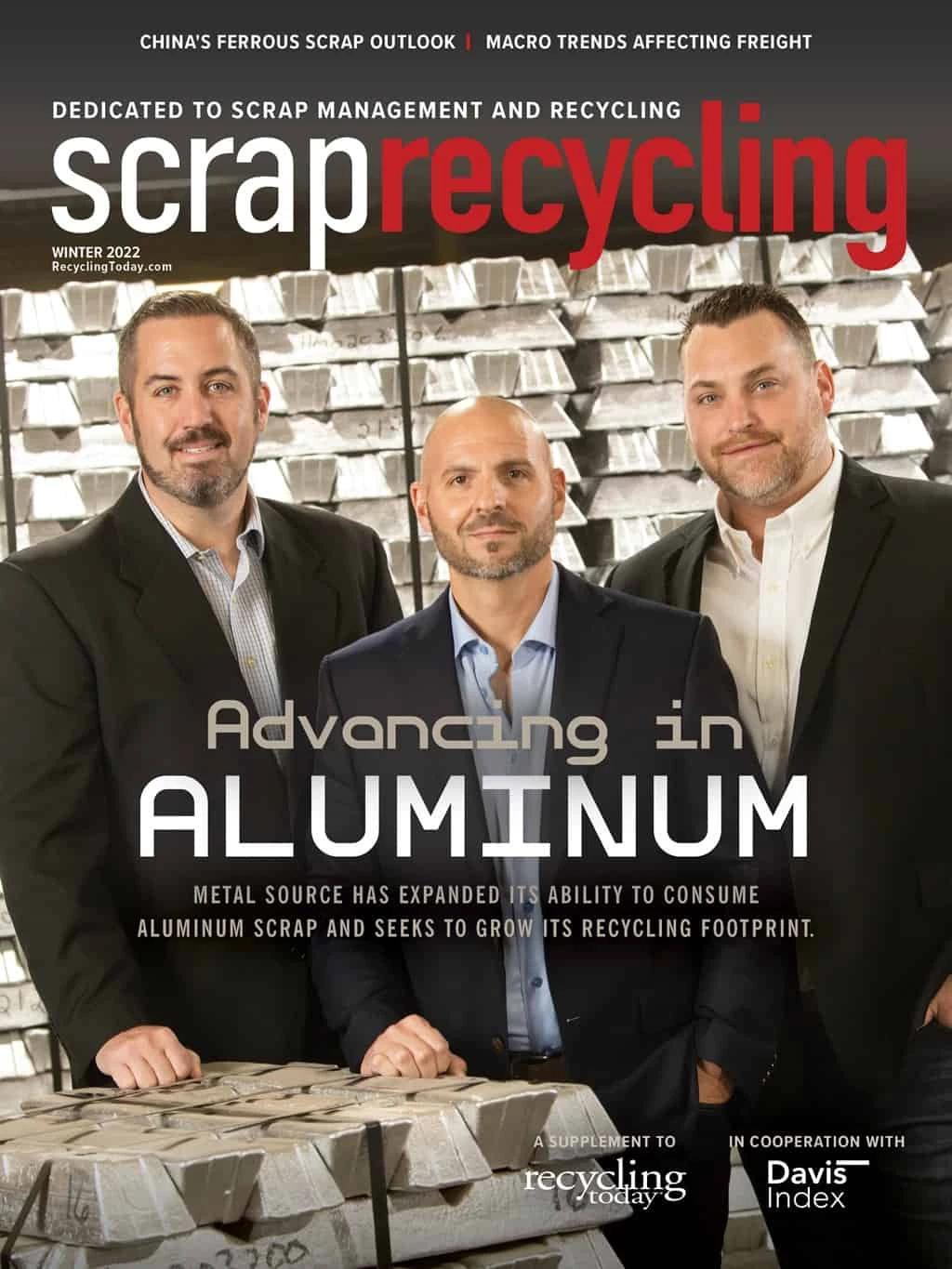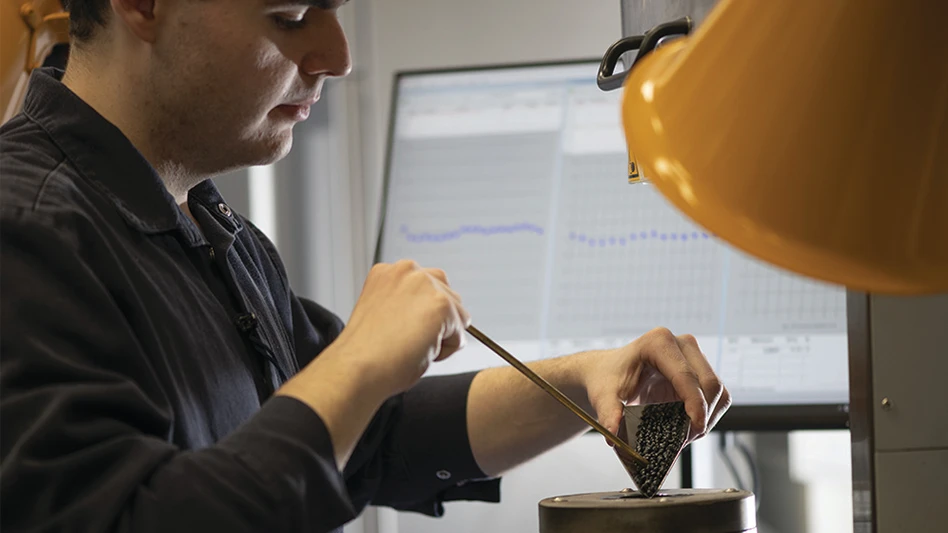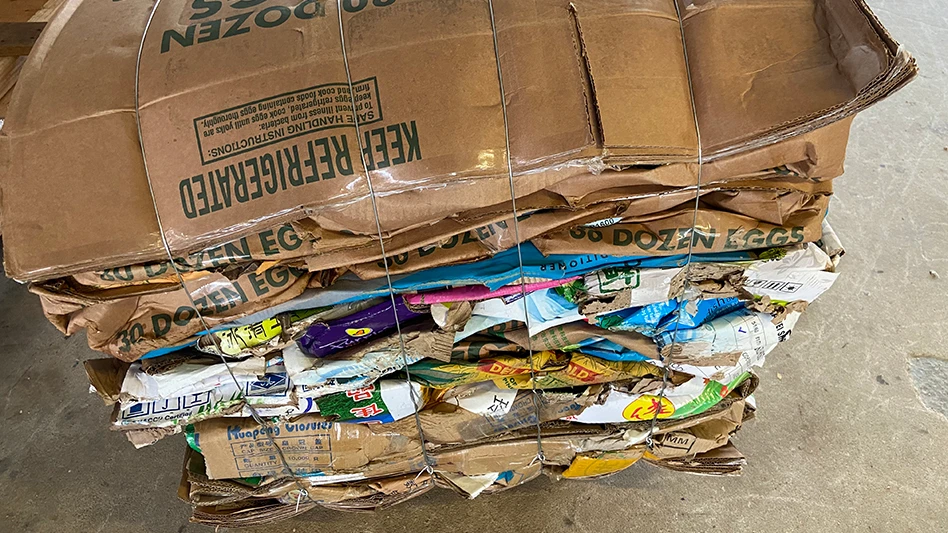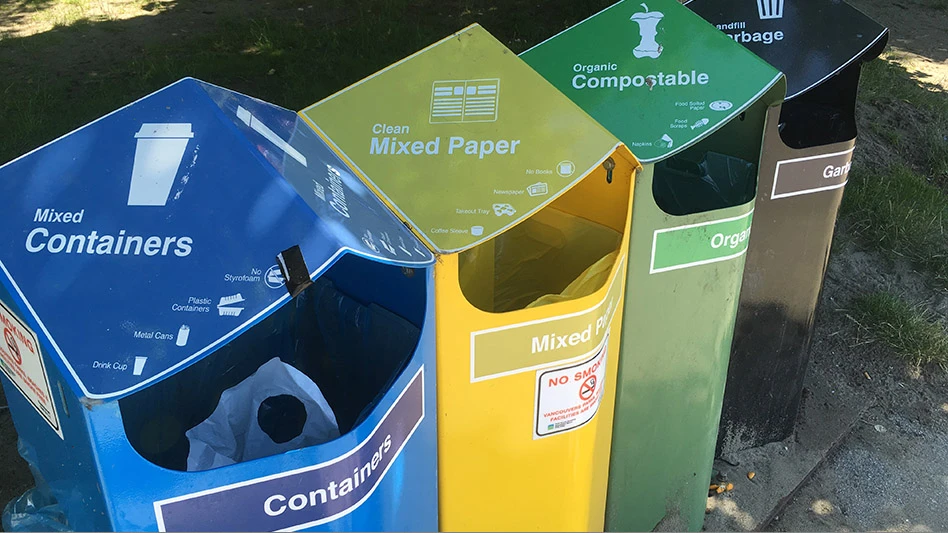
California’s Department of Toxic Substances Control (DTSC) has enacted emergency regulations targeting metal shredding operations in the state. The Institute of Scrap Recycling Industries (ISRI), shredder operators and manufacturers say the legislation will have ripple effects throughout the supply chain.
Emergency regulations
In late October of last year, the DTSC announced it was taking steps designed to protect the environment, human health and vulnerable communities from the impacts of metal shredding operations, including improper hazardous waste storage, soil contamination and the release of hazardous waste into surrounding communities. Those measures were in the form of emergency regulations that the California Office of Administrative Law (OAL) approved Oct. 25, 2021, clarifying that California’s definition of scrap metal does not include metal shredder aggregate, which a DTSC spokesman says “is the output that is generated immediately after the waste comes out of the metal shredder.”
Following OAL approval, metal shredder aggregate is subject to hazardous waste control regulations, according to DTSC, and metal shredder operators in the state are required to monitor environmental conditions and provide financial assurance to address concerns.
“The emergency regulations set up a path for eventually issuing hazardous waste permits or authorizations to certain metal shredding facilities,” the DTSC spokesman says. “Since the definition of metal shredder aggregate was clarified to confirm that it does not include scrap metal, all downstream activities on that waste, including sorting, separating and storage, are subject to hazardous waste requirements.”
Metal shredding facilities that generate and treat metal shredder aggregate must apply for authorization from DTSC to continue those activities.
The DTSC spokesman says the agency is aware of nine facilities that conduct metal shredding activities. “One of those facilities has applied for authorization, and one new proposed facility also has applied” as of mid-December.
However, ISRI’s West Coast Chapter and members of the California Metal Recyclers Coalition have filed a legal challenge to the emergency regulations regarding metal shredder aggregate, resulting in a temporary stay to the requirement to submit Part A of the Hazardous Waste Facility Permit Application, Roger Salazar, spokesman for the California Metal Recyclers Coalition, says.
Salazar says the lawsuit challenges the emergency regulation “on the grounds that (1) there is no ‘emergency’ supporting this radical change in how metal shredding facilities are regulated in the state and (2) the department lacks the authority to regulate metal shredder aggregate in any event, given that it is an in-process material, not a waste.” He adds that federal law considers metal shredder aggregate processed scrap metal and recognizes it as a commodity.
He adds, “ISRI and the coalition acknowledge the need to maintain proper control over in-process materials, and very significant proactive efforts have been undertaken by the industry over the last several years to address the department’s concerns. The coalition maintains that these issues have been satisfactorily addressed and that there is no need for regulation of metal shredding facilities under the Hazardous Waste Control Law.”
DTSC submitted a second emergency rulemaking to the OAL Nov. 30, 2021. The regulations, approved by the OAL Dec. 10, define chemically treated metal shredder residue (CTMSR) and amend California’s hazardous waste exclusion regulations to provide a conditional, limited exclusion to CTMSR as a hazardous waste.
Previously, under Official Policy/Procedure 88-6, California’s shredding facilities that chemically treated metal shredder residue that remained after the metals were recovered were granted nonhazardous waste classification in what were known as “f letters” because the authority for the letters is found in Subdivision (f) of Title 22, Section 66260.200, of the California Code of Regulations. Facilities with “f letters” could manage CTMSR as a nonhazardous waste and dispose of it in municipal solid waste landfills, where it also could be used as alternative daily cover.
The agency says it proposed the second emergency regulation in response to an Oct. 28, 2021, appellate court ruling that gave the agency 30 days to comply with a Superior Court’s order to rescind the “f letter” that was granted to Schnitzer Steel’s Oakland, California, site. DTSC says Schnitzer was one of six metal shredders with “f letters.”
The DTSC spokesman says the newest emergency regulations “create a level playing field and allow for the continued transportation and disposal of CTMSR as a nonhazardous waste in designated nonhazardous waste landfills if certain conditions related to authorization, treatment, documentation, recordkeeping and transportation are met.”
Salazar says the coalition “is generally supportive of this conditional exclusion for CTMSR, which allows the continued use of the treated residue as alternative daily cover in municipal landfills or its disposition at other locations approved by a regional water quality control board.”
While DTSC says these emergency regulations are needed to protect communities, Washington-based ISRI and manufacturers say they will have negative effects on the supply chain.
Business ramifications
Adina Renee Adler, vice president of advocacy at ISRI, says under the approach DTSC is pursuing, “there will likely be serious ripple effects on the downstream manufacturing supply chain.”
In a commentary published in Capitol Weekly Oct. 27, 2021, Lance Hastings, president and CEO of the Sacramento- based California Manufacturers and Technology Association, writes that the regulatory changes introduced in October “are neither necessary or workable.”
Hastings continues, “Regulations that interfere with a reliable and affordable supply of scrap metal will be challenging for manufacturing, and our recycling policies should always be considered with the utmost scrutiny regarding their impacts and necessity.”
Ferrous scrap recovered by shredding operations saves energy and is better for the environment, he says. “The sector’s employers are good actors who should be recognized for their environmental stewardship and their economic contributions to the well-being of so many people.”
Pacific Auto Recycling Center Inc., Lancaster, California, operates a shredder with a 2,000-horsepower motor that processes 5,000 to 6,000 tons of material per month, though it does not process auto hulks. Company President Robert Hall says DTSC’s efforts will make metal shredder operators in the state less competitive by adding more bureaucracy.
He predicts some recyclers could leave California because of the new regulations and their potential effect on profitability. While Hall says he’s in recycling because he wants to help the environment, “If I can’t make money, I can’t operate.”
A long time coming
Since 2014, DTSC has been researching the potential environmental and public health impacts from metal shredding operations in California, issuing its final report, “Evaluation and Analysis of Metal Shredding Facilities and Metal Shredder Wastes,” in August of last year.
In the five-day notice of public comment on DTSC’s first proposed emergency regulation targeted at metal shredders that ran from Aug. 31 through Sept. 7 of last year, DTSC writes that its August 2021 report “along with several recent findings and occurrences, led DTSC to determine that the current regulatory system has created an unforeseen emergency necessitating immediate action to avoid serious and imminent harm to the public peace, health, safety and general welfare.”
In that initial proposed emergency rulemaking, which DTSC withdrew Sept. 9, the agency said it was seeking to clarify the state’s definition of scrap metal by aligning it with the federal definition.
Adler says ISRI commented that the proposed action would have been detrimental to California’s metal recycling industry because it would have “wrongfully” classified metal processing operations at metal shredders as hazardous waste treatment.
With the emergency rulemaking in October, she says, “The main change from the original proposal was to amend California’s definition of scrap metal to exclude shredder aggregate rather than to align California’s regulations and definitions with federal regulations and definitions (an approach that was fundamentally flawed). Unfortunately, the outcome is the same: California is seeking to require shredder facilities to apply for hazardous waste treatment permits for their metal processing operations.”
She adds that ISRI believes DTSC’s concerns can be addressed through a different regulatory approach that does not jeopardize the industry.
Hall says the Resource Conservation and Recovery Act works as intended, adding that DTSC is removing “effective” national legislation and “replacing it with something that can be harmful” to the industry and potentially to the environment if it reduces recycling.
Salazar says the coalition has expressed its concern that the hazardous waste designation will make it untenable for shredders to operate in the state. “The department agrees that metal shredding facilities are an important component of the state’s recycling infrastructure and has sought to assure the industry that it is not seeking to force companies out of business. Industry remains concerned, however, that regulation of shredding facilities as hazardous waste treatment facilities will have unintended consequences and could well lead to the curtailment or loss of significant metal recycling capacity in the state.”

Explore the Winter 2022 Scrap Recycling Issue
Check out more from this issue and find your next story to read.
Latest from Recycling Today
- Commentary: How EPR is transforming the packaging industry
- Acerinox names new North American Stainless CEO
- Greenwave closes 2024 books with red ink
- Steel Dynamics nets $217M on record shipments
- Massive Chinese steelmaking rebound recorded in March
- LME looks into sustainable metal pricing
- OnePlanet Solar Recycling closes $7M seed financing round
- AMCS launches AMCS Platform Spring 2025 update





